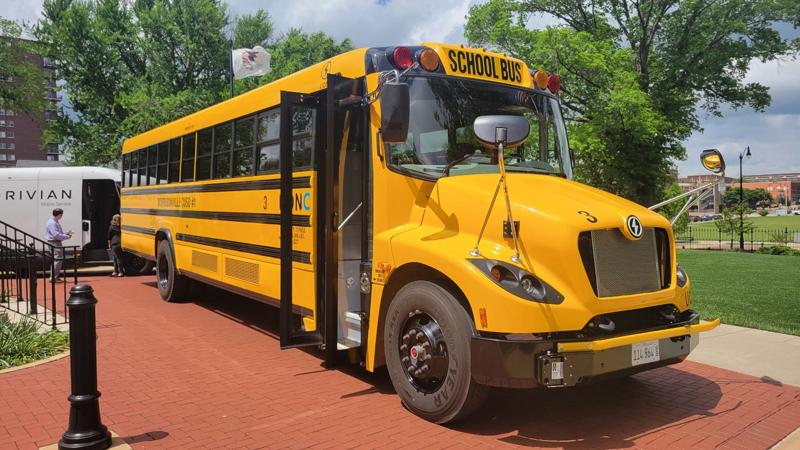A U.S. House committee released a staff report outlining the failures in the Biden-Harris and Environmental Protection Agency’s Electric School Bus Program.
The push to switch from traditional American diesel school buses to more environmentally friendly green buses began on Nov. 21, 2021, when the Clean School Bus Program was created. The program, which had an appropriated $5 billion in funds for fiscal 2022 through 2026, has continued to grow while the inefficiencies of switching the nation’s transportation network that more than 25 million American children use nearly every day have become more apparent, according to the report.
The House Energy and Commerce Subcommittee on Oversight and Investigations surveyed 33 school districts participating in the Clean School Bus Rebate Program and uncovered serious “shortcomings and deficiencies” with electric school buses and the Biden-Harris administration’s Clean School Bus Program. This highlighted the risk of fraud, cost, and environmental impact.
“It is clear the $5 billion Clean School Bus Program is overall a failure and, in many cases, a waste of Americans’ hard-earned taxpayer dollars. The program, led by the radical Biden-Harris EPA, props up a market that relies heavily upon a supply chain dominated by the Chinese Communist Party. Further, the program was constructed without the necessary safeguards to prevent fraud and incentivizes schools to use buses they otherwise would not choose. It’s also important to note that the EPA refuses to tell us how many of these school buses are on the road. As the official tasked with ensuring the success of the program, Vice President Harris bears great responsibility for its significant shortcomings,” Committee Chair Cathy McMorris Rodgers, R-WA, in a news release.
The report focuses on the cost of electric school buses and the poor execution of the program, which relies heavily on taxpayer funding when school budgets are increasingly strained.
In 2023, the EPA announced $900 million in funding,stating that 530 districts would purchase over 3,400 buses, 92% being electric.
Each year, the EPA requires that 50% of the awards go to replacing traditional buses with clean school buses or zero-emission school buses. As of July 1, 2024, 12,164 electric school buses were in various stages of use throughout the country, compared to 2,335 electric school buses in any stage of use in 2021.
Buses being replaced that are older than 2011 are required to be scrapped, not sold or donated.
The Gregory Poole equipment website states that battery electric Type A buses can cost about $250,000, while diesel versions cost around $50,000-$65,000. Larger electric Type C or Type D buses range from $320,000 to $440,000, while diesel versions cost about $100,000.
The website also states that school bus maintenance and fuel are factors in the total cost.
The recipients of the first electric school buses in seven Michigan public school districts reported mixed experiences about the vehicles since adopting them five years ago, as previously reported by The Center Square.







